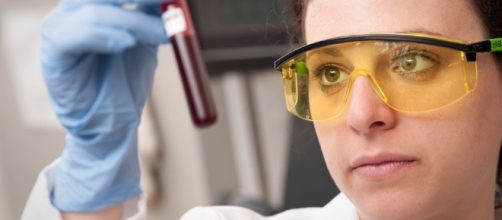Scientists at the University Of California have developed CancerLocator, a Blood Test that detects cancer and identifies where the location of the disease is in the body. The test would allow physicians to diagnose earlier, even before symptoms such as lumps, appear. The test could diagnose specific cancers and is so simple it could be included in routine yearly health checks, along with other tests like cholesterol, blood sugar or hypertension.
Hunting for the DNA from tumors
The Telegraph reported that CancerLocator hunts for the DNA from tumors which circulate in the cancer patient’s blood.
Researchers from the University of California found that tumors have distinct footprints that a computer could locate. The non-invasive computer-driven test could detect cancer and identify the type of cancer from one blood sample, Professor Jasmine Zhou, co-lead author from the University, said.
She emphasized the importance of early detection of cancer because the patient would have a higher chance of beating the ailment. But the technology is still in the infancy stage and would need more validation, Zhou admitted. The team tested CancerLocator 10 times on blood samples from 29 patients with liver cancer, 12 patients with lung cancer and five patients with breast cancer.
Success rate
The CancerLocator blood test had a success rate of 80 percent since it picked eight out of 10 cancers but gave a false positive on fewer than one in 100 tests.
The level of tumor DNA found in the blood is usually lower during cancer’s early stages.
Cancer rate
Data from the National Cancer Institute state that in 2016, about 1.68 million new cancer cases were expected to be diagnosed that year in the U.S. Almost 600,000 would die from the ailment, yielding a mortality rate of 171.2 for every 100,000 men and women yearly.
The CancerLocator blood test is expected to help reduce the number of diagnoses and deaths arising from the top 10 common cancers in 2016. The diagnosis are breast lung and bronchus, prostate, colon and rectum, bladder, melanoma of the skin, non-Hodgkin lymphoma, thyroid, kidney and renal pelvis, leukemia, endometrial and pancreatic cancers.

